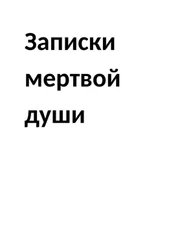Aleksey Muratov - CWT Ideology
Здесь есть возможность читать онлайн «Aleksey Muratov - CWT Ideology» — ознакомительный отрывок электронной книги совершенно бесплатно, а после прочтения отрывка купить полную версию. В некоторых случаях можно слушать аудио, скачать через торрент в формате fb2 и присутствует краткое содержание. ISBN: , Жанр: Публицистика, на английском языке. Описание произведения, (предисловие) а так же отзывы посетителей доступны на портале библиотеки ЛибКат.
- Название:CWT Ideology
- Автор:
- Жанр:
- Год:неизвестен
- ISBN:9785449800626
- Рейтинг книги:4 / 5. Голосов: 1
-
Избранное:Добавить в избранное
- Отзывы:
-
Ваша оценка:
- 80
- 1
- 2
- 3
- 4
- 5
CWT Ideology: краткое содержание, описание и аннотация
Предлагаем к чтению аннотацию, описание, краткое содержание или предисловие (зависит от того, что написал сам автор книги «CWT Ideology»). Если вы не нашли необходимую информацию о книге — напишите в комментариях, мы постараемся отыскать её.
CWT Ideology — читать онлайн ознакомительный отрывок
Ниже представлен текст книги, разбитый по страницам. Система сохранения места последней прочитанной страницы, позволяет с удобством читать онлайн бесплатно книгу «CWT Ideology», без необходимости каждый раз заново искать на чём Вы остановились. Поставьте закладку, и сможете в любой момент перейти на страницу, на которой закончили чтение.
Интервал:
Закладка:
to lend his gold at an interest. He used his own and the
stored gold of the merchants and townspeople, who kept it
for safekeeping. But since everyone never come at the same
time, this business grew rapidly. The ability to give loans
was limited only by the amount of gold in the safe. Then
the bankers came up with an even more daring idea. Since
they were the only ones who knew how much gold was in
the safe they could issue obligatory bills for gold that they
did not have. If all the investors would never come at the
same time to collect, then who would find out? They figured
out how to make money out of thin air. This was the origin
of the phrase “to make money out of thin air”. Jewelers
who realized how to make money out of thin air are today’s
bankers.
That principle became the ground of the existing
financial system that began to take shape about 400 years
ago. Bankers began to lend to governments, who used that
money to wage wars of conquest, and to merchants, who
conducted “business” by exploiting new territories. Since
the governments depended on the banks’s money, they not
only allowed them to make money out of thin air but also
legitimized this process by skewing the ratio making it 9
to 1. Today this is called a “fractional reserve” system.
Today this works in most of the worlds banks and
accepted as a part of the banking philosophy. For example,
if you deposit $1000 into an account, the bank can then
turn around and lend someone else $10,000 in the form
of credit based on this fractional reserve system – legally
creating money out of thin air.
State fraud
The first major state endorsement of this financial fraud was
the Bank of England in 1694. That institution was as a result of
the so-called transaction between a nearly bankrupt government
and a group of financiers. The bank was private and so the state
gave it the official title and the right to issue money. The King
of England was in great need of money for the war with France
and willingly agreed to give the bankers this national title and
get the loans he needed.
In the 1690s the banking system of England included
lending bankers, who provided loans out of borrowed funds,
and jewelers receiving gold for deposits and extending loans
as well. Bankers realized that the power over money might
well result in unlimited opportunities. In a couple of centuries
the British Empire became a leading world power due to the
relentless colonization of other peoples and continents.
In 1913 the next leader emerged surpassing the Bank of England
in the scale and scope of using this fraudulent system. This was the
Federal Reserve (FRS) of the United States. But the Federal Reserve
was not a governmental organization. It was a private enterprise
made up of bankers, a joint stock company established by 12 Federal
Reserve banks, which in turn had been created by commercial banks.
The FRS operates as a private bank. The US government issues bonds
to procure the “national currency” and the FRS prints bank notes and
lends them to the state through the sale of the bonds. The state buys the
bonds and the money returns to the FRS with interest.
Thus, the main objective of the FRS was its income through
seignior age – the difference between the face value of the bank
notes and the cost of their production. For example, if a hundreddollar
banknote costs 10 cents to make, the seigniorage will be
99 dollars 90 cents. Like the Bank of England, the FRS is not
part of the state.
The third US President Thomas Jefferson (1772—1782)
said: “Banking institutions are more dangerous to our
liberties then standing armies. If the American people ever
allow private banks to control the issue of their currency, first
by inflation, then by deflation, the banks and corporations
that will develop around them will deprive the people of all
property until their children wake up homeless in the country
their fathers built”.
Deception, fraud and racketeering are the modus operandi
of the bankers. You’ve heard of names like Rothschild and
Rockefeller. What do they have in common? They both became
rich and powerful using these unfair and corrupt methods and
the law never stopped them as they achieved their goals.
During the great Anglo-French battle of Waterloo in 1815 the
London Stock Exchange was thrown into disorder. If Napoleon
won, the market would be ruined, but if he lost, the market would
be enriched. Rothschild saw this battle as an opportunity to make a
fortune for himself. Using messenger pigeons and signals from boats
along the English Channel he was the first to learn that Napoleon
lost. He quickly spread false information that Napoleon had won to
the London Stock Exchange. He started selling his shares with others
following him and the price of securities went spriraling downward.
Rothschild and his partners, knowing that England had
actually won, bought all the shares for a pittance. A day later,
when the London Stock Exchange learnt about the victory of
England, those shares skyrocketed and were worth a fortune.
Nathan Rothschild earned 40 million pounds on this information
flip. This fraud went down in history as one of many examples
showing the impropriety bankers and their principles.
Rothschild Rockefeller
Rothschild was a great deceiver, however Rockefeller often
used openly criminal methods for doing business ruining the
businesses of his competitors. His criminal infamy reached such
a level that mothers used his name to frighten their misbehaving
children.
The ability to print money without constraint is the dream
of any financier allowing him or her to print as much he desires.
This large supply of money was used to seize the treasures and
resources of others from around the world. Millions were robbed
of the opportunity to share the wealth of the world. The Federal
Reserve engaged in the bribing of politicians, the take-over of
competition and the buying of entire governments in order to
strengthen its position. And in order to protect its position it
financed the world’s strongest army, that of the United States of
America.
What does an ambitious entrepreneur do if he can obtain
a surplus of money? He expands his business. And that is
what the bankers did. In order to increase their earnings
they began to give out loans. This also began to happen
on a governmental level giving out massive loans to build
up armies through the sale of arms and pitting one country
against the other. This led to the destruction of countries,
which gave the banks the opportunity to turn around and
begin giving loans for the rebuilding of these countries, and
the cycle repeated itself. The First and Second World Wars
were examples of this scenario.
Shortly after the FRS was established, the First World
War began. It culminated in the collapse of two currencies
secured with gold – the Russian ruble and the German mark.
However, many American businessmen opposed the bankers
and realized the real motives of the financial robber barons.
In 1929 the Great Depression began. The discount rate of
the FRS suddenly increased and almost half the money
supply was withdrawn from the economy making the credit
cost skyrocket.
Companies that relied on credit went bankrupt and
Читать дальшеИнтервал:
Закладка:
Похожие книги на «CWT Ideology»
Представляем Вашему вниманию похожие книги на «CWT Ideology» списком для выбора. Мы отобрали схожую по названию и смыслу литературу в надежде предоставить читателям больше вариантов отыскать новые, интересные, ещё непрочитанные произведения.
Обсуждение, отзывы о книге «CWT Ideology» и просто собственные мнения читателей. Оставьте ваши комментарии, напишите, что Вы думаете о произведении, его смысле или главных героях. Укажите что конкретно понравилось, а что нет, и почему Вы так считаете.












